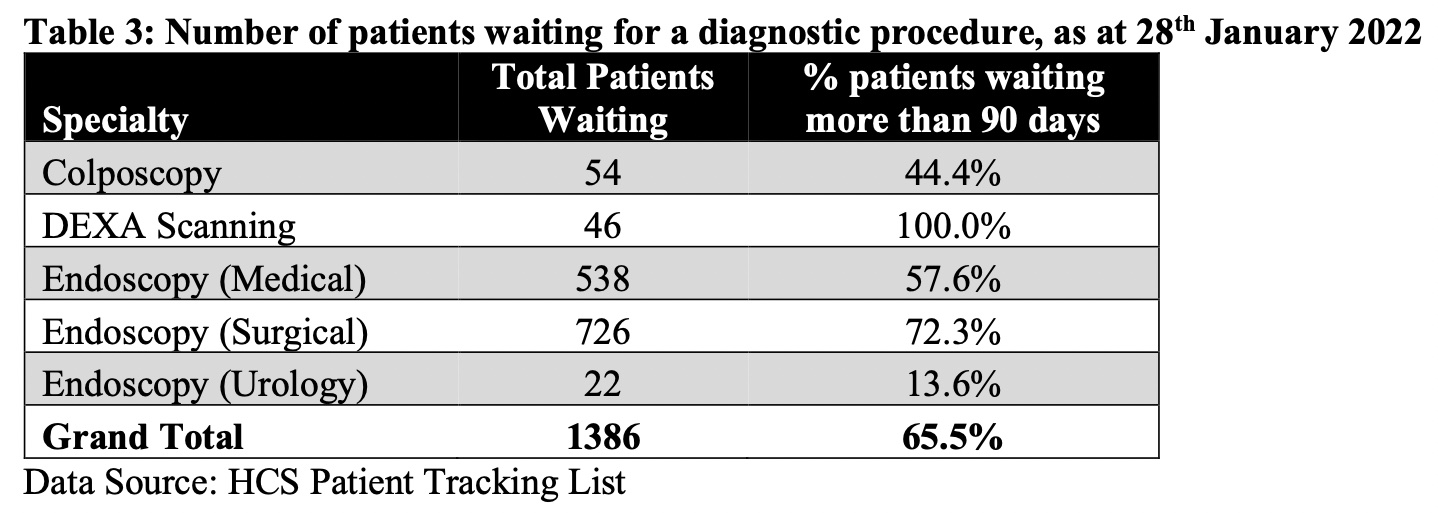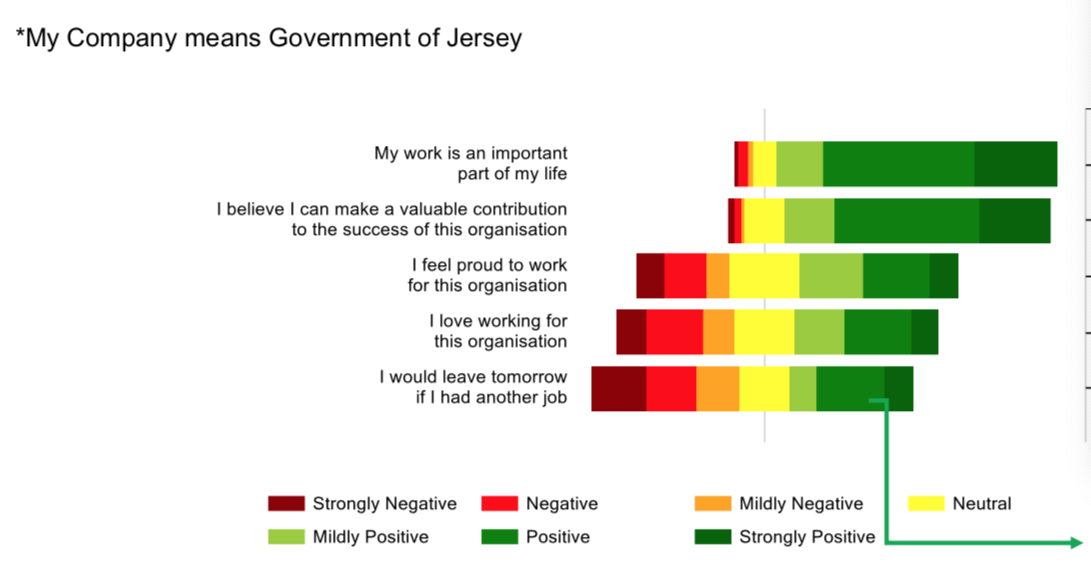


After examining Jersey’s current system of healthcare, today we focus on the hospital, those working there and those managing it.
Covid aside, the outpatient waits for several disabling conditions and mental health have increased on already high pre-pandemic levels.
This particularly relates to dental, endoscopy, ophthalmology and physiotherapy services.
For diagnostic procedures, an average of 65% of patients were waiting >90 days in January of this year, according to figures provided by the Health Minister. Time to first MRI was not included in the figures.

Pictured: Waiting list figures provided by the Health Minister.
How do the processes around outpatient appointments fare? How many times have you been waiting for one, often for months, only to have it deferred? How often have you received requests for attendance sent after the clinic date leading to defaulting on appointments, for which, incidentally, HCS has squarely previously laid the blame on patients? Worse still, how often have you tried to cancel an appointment only to get a letter telling you that you didn't turn up for it? Not to mention lost referrals adding to the above.
There are many happy patients but an increasing number of sometimes expensive complaints (though some in the service would have us believe that might reflect increased patient engagement rather than dissatisfaction with a failing/faltering service).

Pictured: Demand for beds increases pressure on frontline staff.
The acute wards are ok, aren't they? Bed occupancy rates are increasing, or at least that is the direction of travel with our proposed acute hospital. Once again, we seem to be following a UK model that is out of kilter with most of Western Europe and reduces flexibility for unpredicted variations in demand.
Such a demand for beds increases the chaos that is acute care of complex patients which, in turn, leads to extra pressure on frontline staff who are trying to focus on such care.
In Jersey’s business world, data follows interactions electronically, almost immediately. Not so in healthcare.
Most communication from the hospital remains on paper and the inevitably flawed and laborious process of transcribing the data leads to delays in provision of information regarding outpatient, inpatient and pathology services plus, not infrequently, lost correspondence.
Despite good intentions we still don’t yet have a unique identifier for our population (to enable accurate identification across care settings) and we are a quarter of a century behind the UK in terms of electronic transmission of pathology results to the community. All of these may lead to safety issues.
Are delays to improvement just the result of Brexit and Covid?
Undoubtedly, there is some additional effect, particularly on staffing levels, but here too the assertions of frontline carers that there is a dearth of staff in virtually every area have been repeatedly minimised by management and the current Health Minister. Even the Jersey Care Commission publicly maintained there are few problems with care staff numbers in the community in February.
How can these figures be validated? There seems to have been little by way of inspection external to the island for some years but the figures set out in this response to a request under the Freedom of Information Law, itself a revised response, on 14 February 2022 are concerning.
Across the public sector, there have been a great deal of staff departures at all levels, with those linked to compromise agreements totalling more than £4m over the past five years – nearly ‘nine Charlies’ in local currency!
Zooming in on the ‘People’ situation in HCS, damning reports have been delayed for fear they might be “sensationalised”, a highly critical operating theatre report showing that bullying among staff has affected patient care has never been publicly released, and there is historically low morale in our once happy hospital.
Is this really on anyone's radar? Given the obscure nature of publicly accessible information and the plethora of platitudes that emanate from the Government PR machine, it is difficult to say.

Pictured: In a recent employee wellbeing survey, a large tranche of Health employees said they would leave the Department tomorrow if they got another role.
The words Rome and Nero come to mind while our front line continues to try to fight an increasingly difficult battle.
How does Jersey's healthcare system work?
How sick is our health system?
This article is part of a series by Dr Nigel Minihane, aiming to raise questions and prompt debate and discussion about Jersey's health service ahead of the election.
It continues this week and next. Make sure you don't miss it by signing up to Express's daily news email HERE.
Comments
Comments on this story express the views of the commentator only, not Bailiwick Publishing. We are unable to guarantee the accuracy of any of those comments.